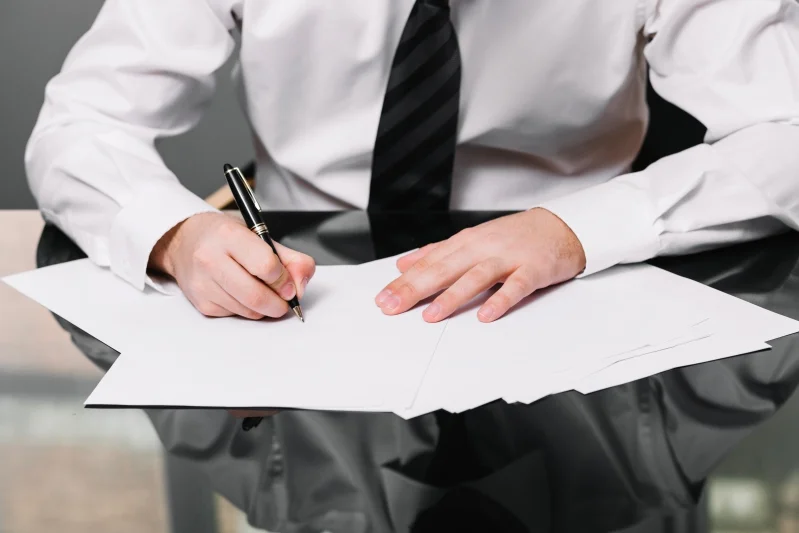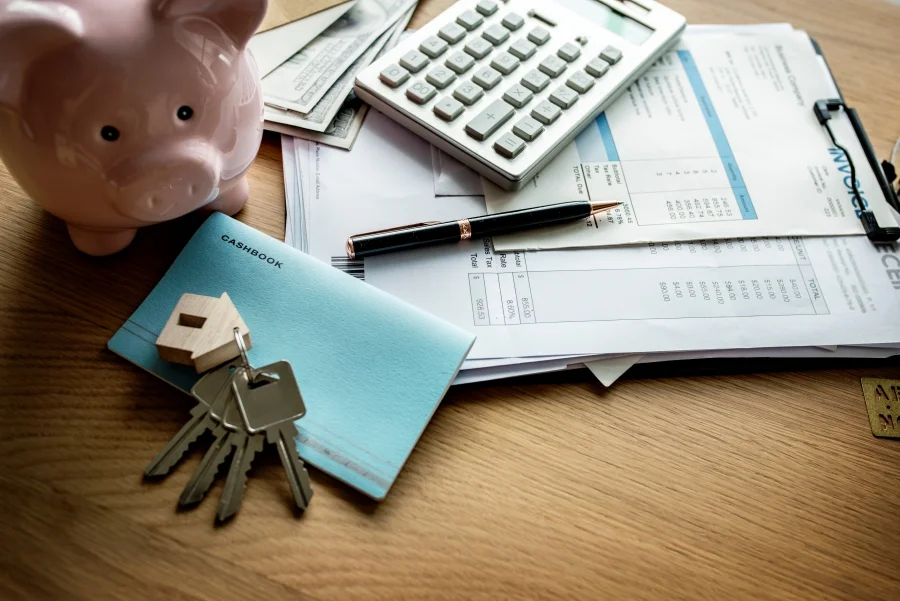
Renting Out an Apartment in the Czech Republic as Passive Income: What You Need to Know

Many people consider renting out their property an easy way to earn extra income. However, many foreigners are surprised to learn that in the Czech Republic, this business is regulated by strict rules. You will need to address various issues, including filing reports and paying taxes.
You can contact 360WEDO specialists for advice on taxation and accounting. In this article, we will cover the main points you need to know. For renting out your property, you can use the services of companies that will handle some of the responsibilities—but it’s important to know what exactly you need to delegate to these companies.
First, you should distinguish what exactly you are renting out. There is a difference between renting out a family home and renting out an apartment, which is usually part of an apartment building or cooperative, or renting out a room or non-residential premises.
For convenience, we will use the term “apartment,” even if you are renting out a room or non-residential premises.
Preparing an Apartment for Rent: Taking Into Account All the Nuances
When preparing an apartment for rent, you need to consider several key factors. First, determine your target audience. This may include students, young families, foreigners, or other categories of tenants. Second, evaluate the characteristics of the apartment: location (city center or residential area), size, layout, and condition. Third, decide on the level of comfort you are ready to provide. This may include the presence of furniture, household appliances, a parking space, or other additional services. The combination of these factors will help you create an attractive offer and set the optimal rental price.

Essential Tips for Renting Out Your Property: Know the Terms to Avoid Issues
It is important to know what kind of property you are renting out and what documents you have for that property. If your property is not registered as an apartment, do not rent it out as an apartment; instead, use a vague term such as “space.” Otherwise, you risk potential disputes with outgoing tenants who may claim that you rented the property to them, even if it does not correspond to the available documents.
For tenants to obtain permanent residence in the building, the consent of the (co)owner or tenant of the apartment is sufficient (here we specifically mean premises approved as an apartment).
The lease agreement and the acceptance protocol are important documents, so pay special attention to them. As the landlord, you are usually considered the so-called stronger party in the event of a legal dispute.
The lease agreement should be reviewed periodically. Legislation in the Czech Republic is constantly being updated, so adjustments may be necessary.
Several separate articles could be written about the specifics of a lease agreement, so it’s advisable to seek guidance from trusted lawyers regarding updates and revisions to lease agreements.
How Long Should I Rent Out My Apartment?
It is common to rent out an apartment (even a municipal one) for one year. It’s advisable not to exceed this period, especially at the beginning. A longer rental term increases risk, particularly if you forget to specify the duration in the lease and encounter a tenant you find unsuitable to live with.
Terminating the lease can be risky for the landlord, as evicting a tenant can be very difficult and, in some cases, may only be possible through the courts.
Stay informed about proposed changes and consider them in the lease agreement in advance. For example, think about how to remove any restrictions on extending the contract, especially if your target clientele is not suited for long-term agreements. Be cautious of setting a rental term that is too short to avoid complications with tax authorities
Regular Inspections and Maintenance of Housing in the Czech Republic
The Czech Republic’s legislation governing the rental of real estate has its own peculiarities and is regularly updated. Therefore, to ensure that all requirements of Czech law are met, it is recommended to consult a local lawyer.
However, even without delving deeply into the legal subtleties, there are certain rules and regulations that must be followed when renting out housing in the Czech Republic. We are referring to regular inspections and maintenance of utility systems.
Mandatory Inspections in the Czech Republic:
- Gas Equipment. Gas boilers and gas communications require regular inspection. According to Czech regulations, a gas service specialist must be called every three years to inspect the general gas equipment in the building, and once a year (during the non-heating season) for a service check of the individual boiler.
- Electricity Supply. Electrical wiring and equipment also need to be checked periodically. It is recommended to call an electrical safety specialist every five years to inspect both the general electrical supply of the building and the wiring in the apartment. If there is a lightning rod, it should also be checked regularly.
- Chimneys. The chimneys of atmospheric gas boilers or fireplaces should be cleaned annually, while condensing boilers should be cleaned once every two years. This requirement is especially relevant for residential buildings in the Czech Republic, where solid fuel heating systems are widely used.
- Fire Safety. Fire safety equipment (fire extinguishers, smoke detectors) must be checked at least once a year. This is a mandatory requirement of Czech fire safety regulations.
Some more tips
When you first contact a specialist, don’t hesitate to clarify what work needs to be done in your particular case and how often. This will help avoid unnecessary expenses and ensure the safety of residents.
Keep all documents confirming the work performed. They may be required when concluding a lease agreement as well as in the event of disputes.
Before a new tenant moves in, it is necessary to re-check all engineering systems and equipment.
It is important to remember that regular maintenance of engineering systems not only ensures the safety of tenants but also extends the service life of the equipment.
Following these rules will help you avoid unpleasant surprises and ensure that the housing you rent out meets all necessary standards.
| To summarize:Call a gas inspector every three years (for common areas and apartments) and once a year (outside the heating season) for a service check of the boiler.Call a specialist to check the electrical supply (for common areas and apartments) and possibly the lightning rod once every five years.Clean chimneys for atmospheric gas boilers or fireplaces annually; for condensing boilers, clean them once every two years.Conduct fire equipment checks once a year. |
During the lease, the frequency (and therefore the cost) of inspections is more or less determined by the tenant; it is sufficient to have the relevant documentation. The minimum requirement for the landlord is that before leasing to the first tenant, all necessary revisions, services, and checks should be provided, and then re-checked each time there is a change in tenants.
How to Find a Tenant in the Czech Republic
If you have specific requirements, it’s often best to use the services of a real estate agent. There are always risks involved, whether you want to rent out an apartment primarily to foreigners or to locals.
Even if you engage a real estate agent, it’s advisable to meet the tenant in person to discuss the lease agreement in detail, along with any unwritten rules and conditions. This is especially important if you are looking for a long-term tenant.
However, keep in mind that rental housing is primarily temporary in nature, particularly in the Czech Republic, where many people seek independent living arrangements. If you’re fortunate, you may only need to search for a new tenant once every few years.
Pay attention to the range of services provided if you are not operating in a residence-business mode. While it’s important for landlords to accommodate tenants, offering services beyond what is necessary can increase the risk that the tax office may classify your rental income as accommodation services.
This issue is complex but important—be mindful of services like apartment cleaning and bedding care. It may be better to act solely as an intermediary or provide these services through a legal entity or individual rather than directly through your own rental.
Repairs and Maintenance
Many tenants believe that when renting an apartment, the landlord is responsible for repairs and maintenance. While many landlords do take on this responsibility—especially those who are particular about upkeep—there is a risk that excessive maintenance could lead the tax office to classify the rent as accommodation services.
Therefore, it’s important to approach this area with caution. If possible, comply with Regulation 308/2015, which requires you to clearly define which services the tenant pays for and which the landlord covers. Ideally, routine maintenance and minor repairs should be the tenant’s responsibility. In fact, the majority of maintenance and repair costs are typically borne by the tenant.
Understanding Minor Repairs
Interestingly, there isn’t a strict limit for what constitutes minor repairs; it depends on the total cost of repairs:
- If the total expenses for minor repairs, as specified in Sections 4 and 5, exceed 100 CZK per square meter of the apartment area within a calendar year, any additional repairs for that year are no longer considered minor.
For example, in a 100 m² apartment, if tenants incur expenses of 10,000 CZK for minor repairs, they will be responsible for all costs. However, if those expenses exceed 10,001 CZK within the same year, further expenses will not be covered. Additionally, transportation costs and other related expenses are not included in the repair costs and must be paid by the tenant.
Important Note on Foreign Tenants
The state prohibits discrimination against foreigners. However, tenants must report their presence to the Alien Police—registering them in the system and subsequently deregistering them when they leave. Be mindful of this requirement, as deadlines are very short.
Repairs and Maintenance
Many tenants believe that when renting an apartment, the landlord is responsible for repairs and maintenance. While many landlords do take on this responsibility—especially those who are particular about upkeep—there is a risk that excessive maintenance could lead the tax office to classify the rent as accommodation services.
Therefore, it’s important to approach this area with caution. If possible, comply with Regulation 308/2015, which requires you to clearly define which services the tenant pays for and which the landlord covers. Ideally, routine maintenance and minor repairs should be the tenant’s responsibility. In fact, the majority of maintenance and repair costs are typically borne by the tenant.
Interestingly, there isn’t a strict limit for what constitutes minor repairs; it depends on the total cost of repairs:
| If the total expenses for minor repairs, as specified in Sections 4 and 5, exceed 100 CZK per square meter of the apartment area within a calendar year, any additional repairs for that year are no longer considered minor.For example, in a 100 m² apartment, if tenants incur expenses of 10,000 CZK for minor repairs, they will be responsible for all costs. However, if those expenses exceed 10,001 CZK within the same year, further expenses will not be covered. |
Additionally, transportation costs and other related expenses are not included in the repair costs and must be paid by the tenant.
Important Note on Foreign Tenants
The state prohibits discrimination against foreigners. However, tenants must report their presence to the Foreign Police—registering them in the system and subsequently deregistering them when they leave. Be mindful of this requirement, as deadlines are very short.
Taxes and How to Pay Them
Property tax should be included in the rent, which also implies an increase in income tax (and, in the case of a business, social and health insurance taxes as well).
However, this approach has an unpleasant aspect: even tenants may be pleased with the increase in these expenses, although ultimately they will bear the cost. There is a more transparent and effective way to handle this.
| Instead of paying the rent as a lump sum, divide it into two (or more) parts:The first part can include clauses about inflation or discounts (for example, for not smoking, not running a business, having no pets, for annual rent, liability insurance, and income verification).The second part should account for property tax and rental income tax. Be sure to specify when payment changes will occur, similar to the inflation clause. If there are multiple apartments in the property, establish a rule for how it will be divided (by the number of apartments or by area for a fairer distribution). |
This way, the tenant will understand that an increase in property tax for the landlord will also lead to an increase in their rent. Conversely, if the tax decreases, their rent will be lowered.
The advantage of this approach is that any increase in rent due to property tax will be clearer and more predictable. You can avoid situations where you raise the rent according to inflation while the property tax increases sharply.
You can also separate the tax from the rent with the same effect. Any increase in rental tax (currently at a rate of 15%) will impact tenants even faster. However, tenants may be less aware that an increase in taxes for landlords will also affect them. At the same time, they will have a clearer view of how much rental income tax landlords actually pay on their rent.
Yes, renting is passive income, but it requires a significant amount of time and at least basic knowledge in various areas.
https://www.mesec.cz/clanky/pronajimani-jako-pasivni-prijem-bez-prace-jak-pronajimat-a-co-vas-ceka
How to get started with 360 WEDO?
Send us the form and our specialist will contact you shortly




